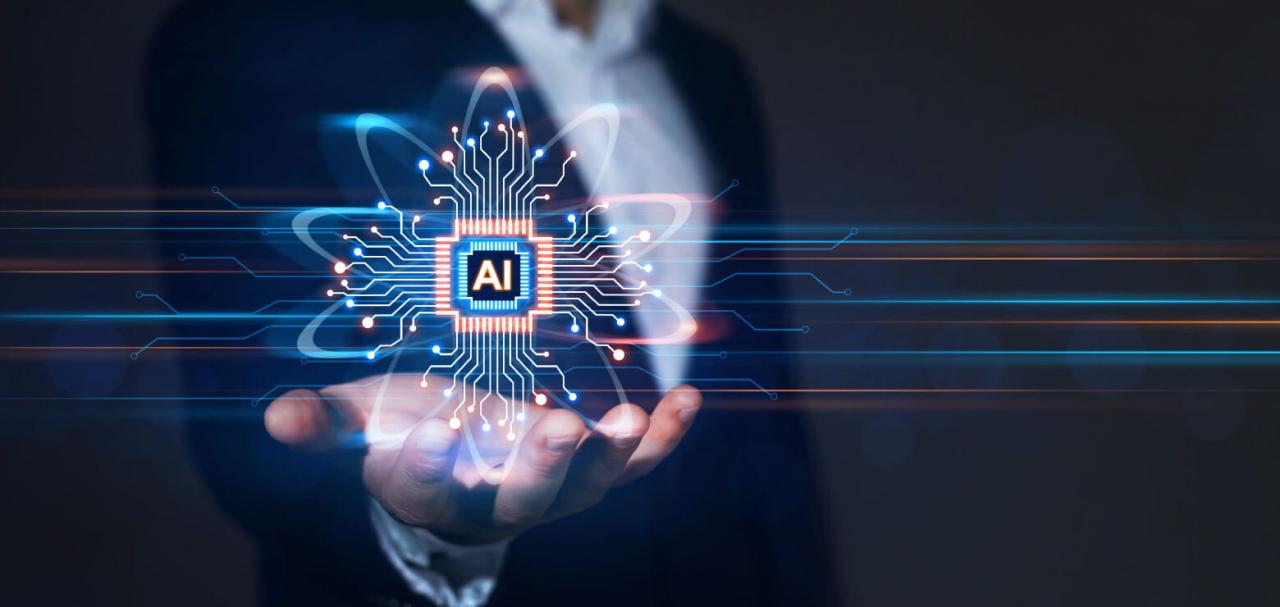The Evolution of Software: From Basic Programming to AI Integration – The Evolution of Software From Basic Programming to AI Integration is a fascinating journey that highlights the remarkable transformations in the world of technology. Over the decades, software has evolved from simple programming tasks into sophisticated systems that can learn and adapt through artificial intelligence. This evolution has not only revolutionized industries but has also transformed the way we interact with technology in our daily lives.
From its humble beginnings, software development has seen a myriad of changes influenced by advancements in computing power, programming languages, and user needs. The transition from basic coding practices to the integration of AI showcases the growing complexity and capabilities of software, paving the way for innovations that continue to shape our future.
In the bustling world of technology, the relevance of artificial intelligence (AI) continues to grow exponentially. From automating mundane tasks to providing insights derived from vast datasets, AI has become a cornerstone of modern innovation. As we delve into the various facets of AI, it’s important to understand its impact on different sectors, how it can reshape industries, and the ethical considerations that arise alongside its development.AI is essentially the simulation of human intelligence in machines that are programmed to think and learn like humans.
The scope of AI is vast, encompassing areas such as machine learning, neural networks, natural language processing, and robotics. Each of these domains plays a critical role in the evolution of technology, allowing for smarter systems that can adapt to user needs and environmental changes.One of the most significant applications of AI can be observed in the healthcare sector. With the ability to analyze medical data at unprecedented speeds, AI aids doctors in diagnosing diseases and developing treatment plans tailored to individual patients.
For instance, AI algorithms can sift through thousands of medical images to detect anomalies that may go unnoticed by the human eye. This capability not only enhances patient outcomes but also streamlines the workflow within healthcare facilities, making processes more efficient.Moreover, AI’s impact extends beyond medical diagnostics. It has revolutionized drug discovery by predicting how different compounds will behave in human bodies.
This accelerates the research and development phase, enabling pharmaceutical companies to bring new drugs to market faster and at lower costs. The ongoing integration of AI in healthcare signifies a shift towards more personalized medicine, where treatments and interventions are customized based on a patient’s unique genetic makeup and health history.In the realm of business, AI technologies are transforming customer service and operational efficiency.
Chatbots powered by natural language processing can handle customer queries 24/7, providing instant responses and freeing human agents to tackle more complex issues. This not only enhances customer experience but also reduces operational costs for businesses. Furthermore, AI can analyze consumer behavior, allowing companies to tailor their marketing strategies effectively. By understanding purchasing patterns, businesses can predict future trends and adjust their inventory accordingly, leading to increased sales and reduced waste.The financial sector is also reaping the benefits of AI.
From fraud detection to algorithmic trading, AI systems can process and analyze vast amounts of data to identify suspicious transactions in real time. This capability not only protects consumers but also strengthens the integrity of the financial system. In investment management, AI algorithms can analyze market trends and make trades at a speed and accuracy unattainable by human traders. This has led to a new era in finance where AI plays a critical role in decision-making processes, driving profitability and efficiency.However, the rapid advancement of AI also raises ethical dilemmas that society must address.
One pressing concern revolves around data privacy. As AI systems require vast amounts of data to function effectively, the question arises: how is this data collected, stored, and used? Ensuring that personal information is handled responsibly and transparently is crucial. There is a fine line between leveraging data for innovation and infringing on individual privacy rights. Striking this balance will require robust regulations and ethical guidelines that govern AI development and deployment.Another ethical consideration pertains to bias in AI algorithms.
If the data fed into these systems is biased, the resulting outputs can perpetuate existing inequalities. For example, facial recognition technology has been criticized for its inaccuracies when identifying individuals from certain racial or ethnic backgrounds. To mitigate bias, it is essential for developers to employ diverse datasets and continually evaluate their algorithms for fairness. Fostering inclusivity in AI development is not only an ethical imperative but also enhances the efficacy of AI solutions.As we look to the future, the potential of AI seems limitless.
The continuous evolution of technology will likely result in even more sophisticated forms of AI that can understand and interact with the world in increasingly human-like ways. The rise of AI presents opportunities for new job creation, particularly in fields that develop and maintain AI systems. While fears of job displacement are valid, historical trends indicate that technological advancements often lead to the emergence of new roles that we have yet to imagine.Education and retraining will play a pivotal role in ensuring that the workforce is prepared for this AI-driven future.

Incorporating AI literacy into educational curriculums can equip students with the skills needed to thrive in a world where AI is ubiquitous. Additionally, organizations must invest in reskilling programs for their employees, empowering them to transition into new roles rather than face obsolescence.In conclusion, artificial intelligence is reshaping our world in profound ways, touching every sector from healthcare to finance and beyond.
While the benefits of AI are numerous, they come with significant ethical responsibilities that we must navigate thoughtfully. By fostering a culture of inclusivity, transparency, and continuous learning, we can harness the power of AI for the greater good while addressing the challenges it presents. As we move forward, collaboration between technologists, policymakers, and society at large will be essential in shaping a future where AI serves humanity in a responsible and equitable manner.


